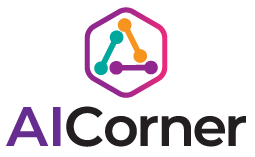With Artificial Intelligence (AI) changing the global job market, industries are being reshaped and skills required for the workforce are redefined. We are drastically seeing the employment landscape change as AI becomes more and more advanced. This article examines AI’s double-edged sword: the creation of fresh positions and the potential redundancy of some professions.
The Rise of AI-Driven Roles
With AI growing in every industry new jobs are being created. These roles typically call for a unique mix of skills that are not simply bundled with technical expertise:
AI Ethicists – As AI continues to influence decision-making, the demand for professionals who can focus on the ethics of these systems will follow. Part of the role that ethicists play in AI involves ensuring these applications are neither divided nor obscured and that they are executed correspondingly to human values.
Machine Learning Engineers: Create the algorithms used to allow machines to make predictions or decisions without explicit programming.
Data Scientists: Demand for data scientists has exploded with the onset of AI, although it is not a new field. Interpreting and Drawing Insights from Complex Data to Enable Better Decisions
AI Trainers: With increasingly robust AI systems, there is also an increasing need for humans to train these systems — particularly in categories that rely on nuanced comprehension or emotional intelligence.
Robotics Engineers: Robotics and artificial intelligence are fusing with the increasing demand for engineers to design, develop as well as maintain AI-driven robots across industries.
Professions at Risk
While AI paves the way for new opportunities, it also cripples a few professions:
Data Entry Clerks: Traditional data entry roles are increasingly being automated as AI advances in its ability to process and digitize information.
Telemarketers: AI chatbots and voice recognition are replacing a lot of the tasks performed by human operators.
Bookkeepers and Accounting Clerks: With AI depending on machine learning algorithms there are now various accounting jobs that can be automated through the use of technological solutions making certain tasks obsolete which would reduce the demand for human bookkeepers.
Assembly Line Workers: With the increasing trend towards automation in factories using AI-powered robotics, many basic manufacturing jobs hang in the balance.
Drivers: The driving industry may be the poster child for displacement in a post-autonomous world as millions of professional drivers face an uncertain future.
The Transformation of Existing Roles
AI is more than jobs just disappearing entirely.
AI won’t replace doctors, but it can change how they work (Healthcare Professionals) AI: Helps in Diagnostics, Treatment Planning, and Monitoring of the Patient — Freeing healthcare professionals to care for more severe cases and patients.
Educators: AI is transforming the way students learn and grade exams, among other uses. As AI evolves, so do teachers and they become facilitators of improved learning experiences with the help of artificial intelligence.
Customer Service Representatives: Even as some customer service tasks get automated, there are still others that call for human reps to deal with difficult questions and offer the support of empathy.
Can Be A Substitute For Financial Analysts: AI can analyze huge amounts of financial data and in a flash meet the computation task without making human analysts necessary for day-by-day record-keeping duties.
Preparing for the AI-Driven Job Market
Success within this world will require people and organizations to assimilate:
Continuous Learning — Because you need to be a lifelong learner if you want to remain relevant. Start acquiring skills that AI cannot replace such as critical thinking, problem-solving, and creativity.
MongoDB: Learn new things — Many auf us alsö have had tö leaned än entire Nev.
Though you do not need to be a programmer, familiarity with AI and what it can achieve will become necessary in various fields.
Soft Skills Training: The more routine tasks are taken up by AI, the more human skill sets like leadership communication and problem-solving become pertinent.
Interdisciplinary — Bringing domain expertise with AI knowledge brings new types of job opportunities.
The Future Outlook
The changes to job markets caused by AI are more complex than just the narrative of creating jobs versus subtracting positions. They are not, it is a structural change to employment everywhere. Some functions will disappear, but others are emerging and some existing professions can change.
To sail smoothly in this change, we need to be malleable with a promise of continually adding up knowledge and knowledge. Living that way of life enables people to thrive in an AI economy. At the same time, policymakers and educators must cooperate to ensure that workers are ready for these technological changes by providing training/assistance for those who may be replaced at work.
Looking beyond, it is important to keep the AI revolution in perspective through a lens that acknowledges limitations in addition to opportunities. Together, we can head towards the world where AI supports human capabilities and does it well in a perfect symbiosis for more proactive and creative workflow worldwide.

